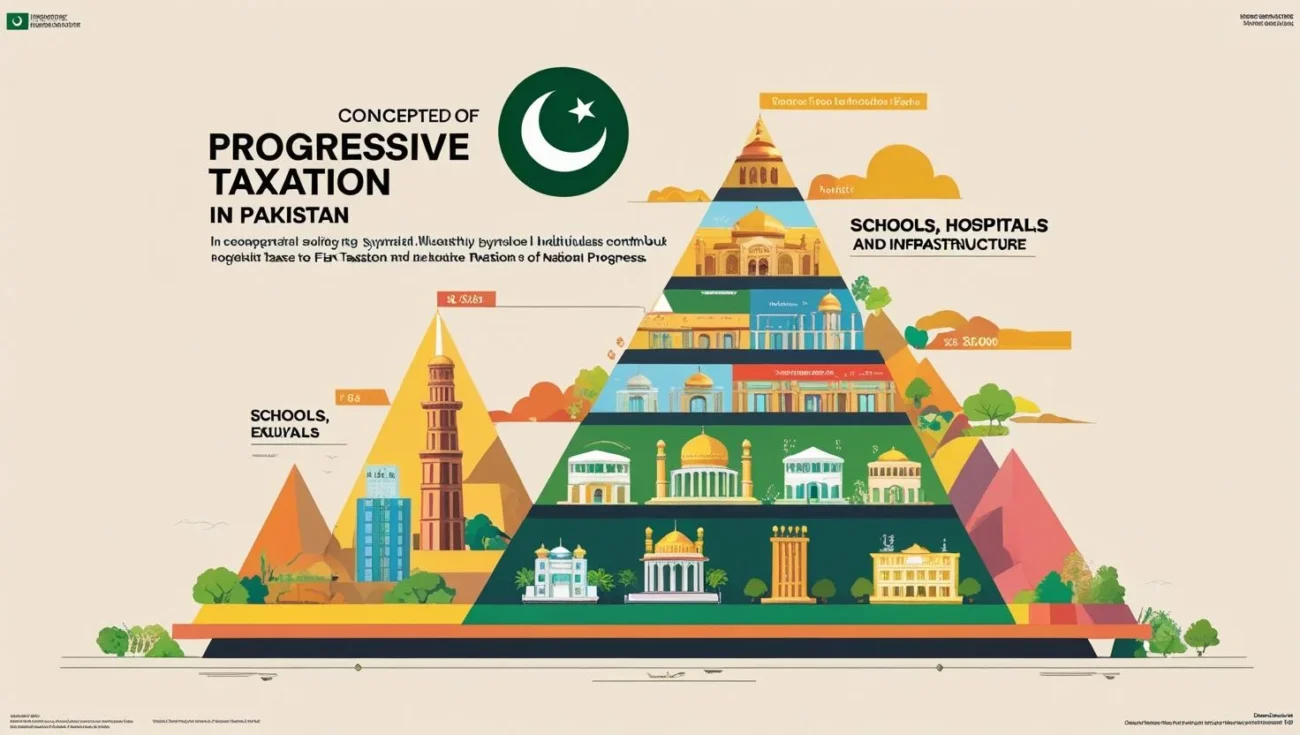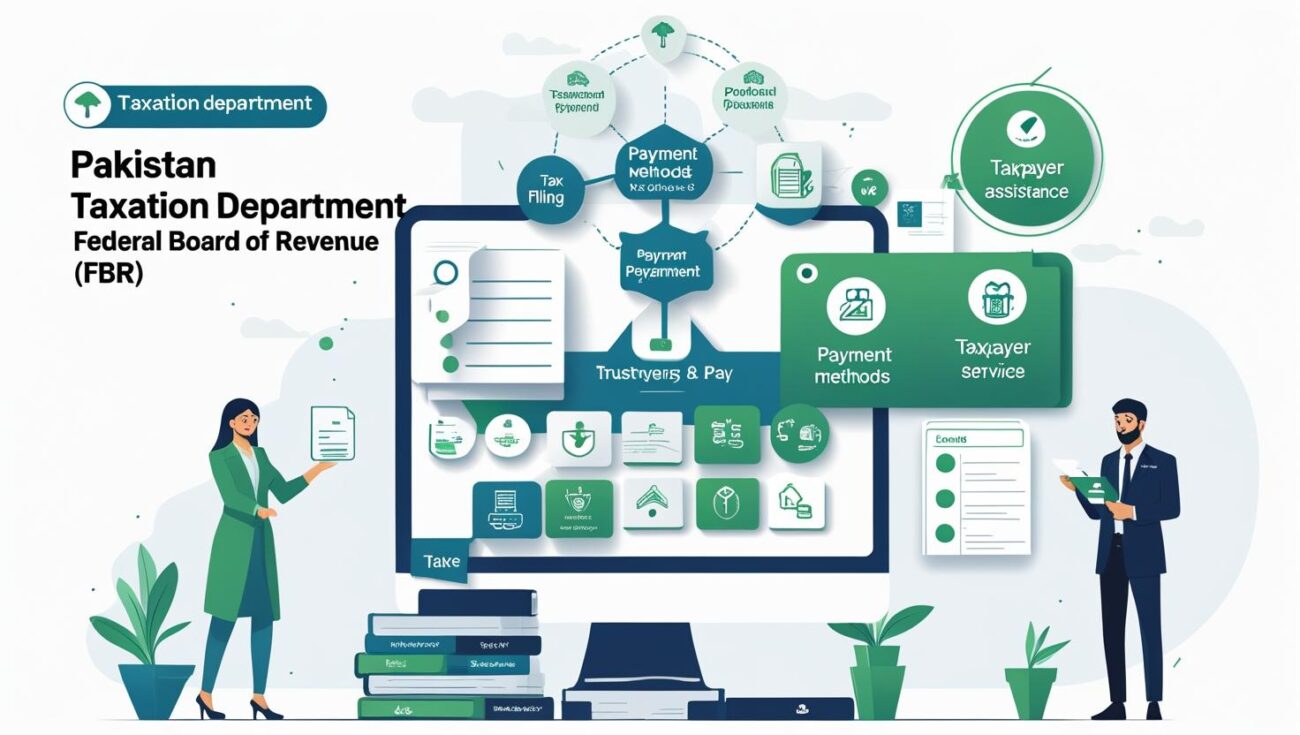A progressive tax system is one in which the tax rate increases progressively as an individual’s income rises. Those undertakings or people who have greater incomes contribute a bigger portion of their revenues as taxes. Such a system is meant to bring equity because the financially stronger will contribute more to the state coffers. Unlike the flat or regressive taxes, the progressive allows the taxation to be right according to the ability of an individual to pay.
Global Relevance and Local Need
Although applied worldwide, in Pakistan, a state facing severe income inequality and low amounts of the public resources, the progressive tax structure is especially crucial. It provides an avenue to a pro-equitable economic growth by ensuring a per capita share of taxes among the various income groups.
Progressive Taxation Structure in Pakistan
Slabs of Income Tax on Individuals
Personal income tax in Pakistan is the most prominent form of progressive tax in the country. The government has come up with income slabs to front salaried people, and the rates rise at every stage. As an illustration, individuals who earn less than 600 thousand Pakistani rupees per annum normally do not pay taxes, whereas high paying individuals, more so those arguing that pays above 6 million Pakistani rupees pay their taxes at high rates. These are rates that are updated every year through Finance Act.
Corporate Tax and Sectoral Differences
Progressivity is also implemented in the corporate tax systems of Pakistan, i.e. the bigger and more profitable corporations, e.g. telecom operators and the banks are taxed at higher rates. Nevertheless, there are several exceptions and subsidies to particular industries that tend to cancel out the impact. Furthermore, most of the businesses are informal and do not pay taxes in any manner which undermines the system and its equity.
Use and Significance of Progressive Tax
Addressing Income Inequality
The argument that progressive tax can be most effectively used in Pakistan since it will help to eliminate the high levels of income inequality that exist in the country is one of the strongest reasons why the progressive tax is the best system or taxation in the country. Under the proper application, it enables the state to get increased incomes out of the pockets of those who are able to pay, and use that amount of money in the betterment of the marginalized population.
Funding Essential Public Services
The areas that are most vital like healthcare, education, supply of water, sanitation and transport gets its much needed funds through progressive taxes. Such services are particularly crucial in the poor parts of Pakistan where people cannot use nearly anything except the government support.
The Consequences of Inequality in Economy
Regional Inequalities and Metropolitan-Rural Divide
It’s not just about people being rich or poor in Pakistan—whole regions face different economic realities. Investment and services remain much higher in the urban centers such as Lahore, Karachi, and Islamabad, as opposed to the northern region of Balochistan or in the southern region of Punjab. This inequality can be reversed by taxing those in a better position to pay at progressive rates and redirecting the money to areas which the state has not been attending to.
Concentration of Wealth and Social Instability
In a situation where a small percentage of the populace possess most wealth, not only is it the cause of resentment but it also blocks economic movement. Progressive taxes can be used to redistribute wealth, ease tensions and make the economy less exclusive.

Key Implementation Problems
Widespread Tax Evasion
Escape is one of the greatest challenges to the existence of progressive taxation system in Pakistan. Some of the rich and corporates distort financial records, transfer earnings to tax-free zones or operate in informal economy to evade paying taxes. This compromises the system.
Poor Filing Tariffs and Informal Economy
India has a population of more than 240 million people and there are less than 4 million people who pay taxes every year. The informal sector extends to include the small traders, big landowners to the farmlands and their activities are usually unregulated. What this entails is that there is a unjustified heavy burden placed on the taxation on the compliant salaried individuals.
Institutional Weaknesses
In Pakistan, taxes are collected by the FBR—but many say it’s slow, old-fashioned, and riddled with corruption. The presence of weak institution results in ineffectiveness of the best designed progressive tax system due to poor enforcement.
Reforms Needed to Strengthen the System
Widen the Tax Base
To make a progressive tax system functioning in Pakistan, there is a need to hoist more individuals into the tax net. This encompasses the highly income people in the real estates sectors and agriculture as also the informal businesses that are now operating with zero taxes. This would also relieve the middle-class earners of getting burdened much by increasing the base.
Digital Infrastructure
Tax improvement can be revolutionary with the help of technology. With the usage of the digital invoicing, e referencing and monitoring of transactions in real-time, the government can monitor incomes in a more responsible and be able to detect evasion. This does not only enhance transparency but also creates confidence within the taxpayers.
Tax Simplification
Complexities in the taxation system are a disincentive to paying taxes and provide loopholes to be exploited. By making the system simple and transparent, a lot more individuals will be ready and able to pay their dues. The effectiveness of a progressive tax system depends on robust enforcement mechanisms supported by a straightforward design, which amplifies its intended impact.
Rebuild Trust in FBR
The tax system lacks credibility among people. Citizens have the fear of their tax getting wasted or misappropriated. The restoration of trust can also be created through transparent budgeting, visible audits, improvements in services that can lead to voluntary compliance and adherence to progressive policies.
Greater Social Impact Of The Society
Civic Duty and National Development
An efficient progressive tax ensures the citizen has a civic orientation. The individual will be more willing to pay taxes when he or she perceives that the taxes they are paying are resulting in improvement of roads, schools and hospitals. This helps build trust and cooperation between the people and the government.
Cutting Foreign Aid Reliance
Pakistan can take lesser loans and assistance to improve the economy and its domestic tax collection is good enough to avoid taking foreign loans and aid which are usually accompanied by economic and political restrictions. Graduated taxation creates the independence of finances and the independence of economics.
Conclusion
Not only is the progressive tax scheme a Pakistani financial policy, but it is also an agency serving to accomplish economic fairness. Although existing theoretically, the system has not been fully utilized due to tax evasion, inefficiency of the institutions and distrust on the part of the citizens. However, the progressive tax system can revolutionise the fiscal scene of Pakistan when steps are made boldly to change, up-date technologies used, and the country committed to what is reasonable. It will be able to finance basic needs which will decrease inequality and open the door to a more equal and independent country.


